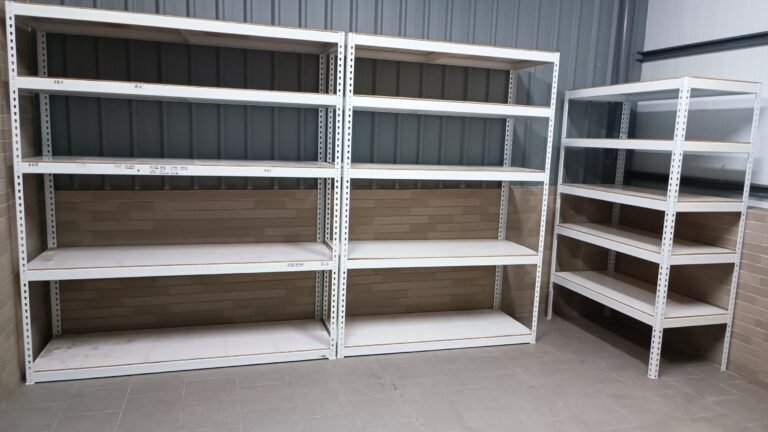
CNC milling services have revolutionized the manufacturing world by offering precision, efficiency, and versatility in machining processes. As an advanced form of subtractive manufacturing, CNC (Computer Numerical Control) milling allows businesses to create intricate parts and components with unparalleled accuracy. This technology plays a crucial role in many industries, transforming the way products are designed, prototyped, and produced on both small and large scales. In this article, we will explore the broad applications of CNC milling services across different sectors, highlighting why these services are indispensable in today’s competitive market.
Understanding CNC Milling Services
CNC milling is a machining process that involves the use of computerized controls and rotating cutting tools to remove material from a workpiece. The machines are programmed to follow precise paths and dimensions, allowing the creation of complex shapes and designs that would be difficult or impossible to achieve manually. This automation results in high repeatability, reduced human error, and the ability to produce consistent, high-quality parts.
The versatility of CNC milling services lies in the variety of materials that can be machined, from metals like aluminum, steel, and titanium to plastics, composites, and wood. Additionally, CNC milling machines come in different sizes and capabilities, from small desktop units for rapid prototyping to large industrial machines capable of handling heavy-duty manufacturing tasks.
Aerospace Industry
The aerospace industry demands extreme precision and reliability due to the critical nature of its components. CNC milling services are extensively used in aerospace for fabricating engine parts, structural components, and complex assemblies. The ability to machine lightweight materials such as titanium and aluminum alloys is vital for improving fuel efficiency and performance.
In aerospace manufacturing, CNC milling helps produce parts with tight tolerances and complex geometries, including turbine blades, airframe components, and brackets. The consistency of CNC milling services ensures safety and compliance with rigorous industry standards. Moreover, CNC milling facilitates rapid prototyping, enabling faster design iterations and reducing the time to market for new aerospace innovations.
Automotive Industry
The automotive sector also benefits greatly from CNC milling services. From custom parts for high-performance vehicles to mass production of engine components, CNC milling machines are integral to automotive manufacturing. They help create precision parts such as transmission housings, cylinder heads, and suspension components.
CNC milling services allow manufacturers to optimize part design for durability and weight reduction, enhancing vehicle performance and fuel efficiency. The automation provided by CNC also enables efficient production runs, reducing lead times and costs. Additionally, with the rise of electric vehicles, CNC milling is crucial in developing components like battery housings and electric motor parts that require exact specifications.
Medical Industry
In the medical field, CNC milling services contribute to the fabrication of surgical instruments, implants, and prosthetics. Medical devices often require intricate designs and biocompatible materials, such as titanium and medical-grade stainless steel, which CNC milling machines can handle effectively.
Custom implants, including hip and knee replacements, benefit from CNC milling’s precision, ensuring a perfect fit for patients. The technology also enables the production of delicate instruments used in minimally invasive surgeries. CNC milling supports the medical industry’s need for high-quality, reliable products that meet stringent regulatory requirements and improve patient outcomes.
Electronics and Technology
The electronics industry relies on CNC milling services for producing components such as heat sinks, housings, and circuit boards. With increasing demand for smaller and more powerful devices, precision machining is essential to create compact and complex parts.
CNC milling allows manufacturers to work with materials like aluminum and plastic to create protective casings and internal components with exact specifications. The flexibility of CNC milling supports rapid prototyping of new electronic devices, facilitating innovation and reducing development cycles.
Industrial Machinery and Tooling
Industrial equipment and tooling manufacture heavily depend on CNC milling services for producing parts that require high durability and precision. Components such as gears, shafts, molds, and dies are often created using CNC milling to ensure reliable operation in heavy machinery.
The ability of CNC milling to produce consistent parts in large quantities helps reduce downtime and maintenance costs for industrial operations. Moreover, CNC milling enables custom tooling solutions that improve production efficiency and product quality across various manufacturing environments.
Custom Manufacturing and Prototyping
Beyond large-scale industrial applications, CNC milling services are popular in custom manufacturing and prototyping. Businesses across industries use CNC milling to quickly create prototypes for testing form, fit, and function before committing to mass production.
The flexibility of CNC milling enables designers to make fast adjustments and produce multiple iterations without significant cost increases. This capability accelerates product development cycles and helps companies bring innovative ideas to market faster. Additionally, CNC milling supports low-volume production runs, catering to specialized markets and custom orders.
Architecture and Art
CNC milling services are also utilized in architecture and art for creating detailed models, decorative elements, and sculptures. The precision and versatility of CNC milling allow artists and architects to realize complex designs in materials such as wood, foam, and stone.
Architectural models benefit from the accuracy of CNC milling, which can replicate intricate details on a small scale. In the art world, CNC milling opens new possibilities for creative expression, combining technology with traditional craftsmanship to produce unique works.
Benefits Driving Industry Adoption
Several key benefits drive the widespread adoption of CNC milling services across industries:
- Precision and Consistency: CNC milling machines deliver high accuracy and repeatable results, essential for industries with tight tolerance requirements.
- Material Versatility: The ability to machine a wide range of materials enhances the applicability of CNC milling in diverse sectors.
- Cost Efficiency: Automation reduces labor costs and waste, making CNC milling economical for both prototypes and production runs.
- Speed: Faster setup and machining times accelerate product development and manufacturing.
- Complex Geometry: CNC milling can create intricate designs that manual machining cannot replicate.
- Scalability: CNC milling easily adapts from small batch production to mass manufacturing.
Conclusion
The versatility of CNC milling services has made it an indispensable technology in modern manufacturing. From aerospace and automotive to medical, electronics, and even art, CNC milling plays a vital role in producing precise, reliable, and complex components. Its ability to work with various materials, deliver consistent quality, and accelerate production processes positions CNC milling as a cornerstone of innovation and efficiency across multiple industries. As technology advances, CNC milling services will continue to evolve, opening new frontiers in design and manufacturing possibilities.





